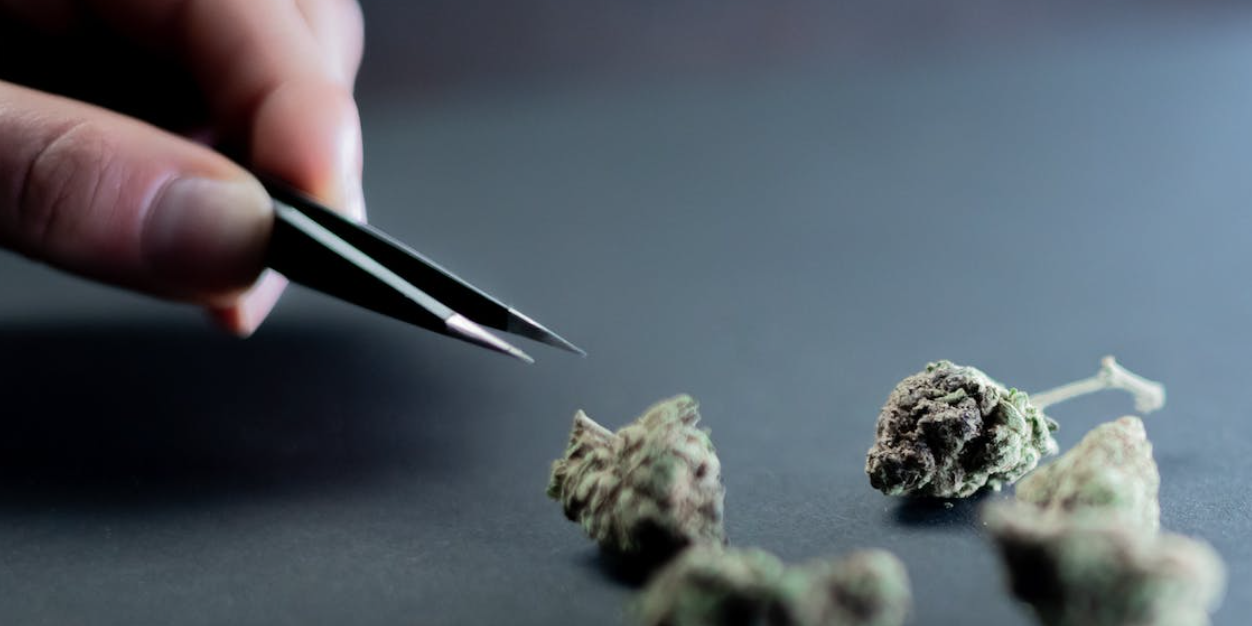Those in the U.S. receiving benefits through the Supplementary Nutrition Assistance Program (SNAP), previously known as food stamps, may be wondering if they can use SNAP to buy cannabis and related products.
The short answer is no. It seems a spoof article way back in 2014 got the Internet buzzing with the possibility that SNAP and bud could be partnered, with the same question resurfacing every now and again.
The U.S. Department of Agriculture (USDA), under which SNAP operates, notes benefits can be used for any food for a household, such as fruits, vegetables, meat, poultry, fish, dairy products, breads, cereals, snack foods, non-alcoholic beverages and seeds and plants that “produce food for the household to eat.”
The benefits, however, explicitly cannot be used for beer, wine, liquor, cigarettes, tobacco, vitamins, medicines, foods that are hot at the point of sale and non-food items such as pet foods, cleaning supplies, hygiene items and cosmetics.
It would seem safe to assume that if people cannot use the benefits to buy liquor, cigarettes and medicines, cannabis and related products would also be off the list. That is confirmed by information from the USDA.
USDA treats hemp and cannabis products differently
The USDA makes a distinction between cannabis, which is illegal federally, and hemp, which is not (although it must contain no more than 0.3 per cent THC).
“Food products that contain hulled hemp seed, hemp seed protein powder and hemp seed oil may be purchased with SNAP benefits,” the department notes, but hemp plants, leaves and shoots are off-limits.
“Food containing cannabis-derived products, such as CBD, and any other controlled substances, are not eligible to be purchased with SNAP benefits,” the information adds.
SNAP information posted on a government site for Colorado, where both medicinal and recreational cannabis are legal, basically repeats the same do’s and don’ts as the federal website.
Washington State’s Department of Social & Health Services, for its part, offers a fact sheet on its cash grants and food benefits.
For cash grants, it is illegal to buy cigarettes, tobacco or alcoholic items, services in beer or wine shops unless authorized as a SNAP retailer and in any place that prohibits those younger, such as a marijuana retailer.
For food benefits, it is illegal to use food benefits for anything other than food for eligible household members, as well as to exchange benefits or food purchased for anything of value (trafficking), including in exchange for cash, drugs or weapons.
Cannabis remains federally illegal in the U.S.
SNAP is a federal program and cannabis remains illegal federally.
Listed as a Schedule 1 substance under the Controlled Substances Act, “it has a high potential for abuse, no currently accepted medical use in treatment in the United States and a lack of accepted safety for use under medical supervision,” per a Drug Enforcement Administration fact sheet.
“Although some states within the U.S. have allowed the use of marijuana for medicinal purpose, it is the U.S. Food and Drug Administration that has the federal authority to approve drugs for medicinal use in the U.S.,” the sheet makes clear.
Even in U.S. states where recreational weed has been green-lit, services have had to make adjustments if they receive (and want to continue receiving) federal funding.
Two years ago in Chicago, for example, residents were alarmed when the Chicago Housing Authority (CHA) issued a memo informing occupants of federally subsidized households that they would not be able to use cannabis in their homes post-legalization.
CHA responded by easing its planned approach, though, updating its policy to allow complaints involving cannabis to result in “consideration of relevant facts on a case-by-case basis.”
Also in 2020, Maine’s Department of Education announced that the feds would cut off funding dedicated to youth mental health programs because of the state’s medical marijuana policy, per the Lewiston Sun Journal.
Debit card used to purchase approved SNAP items
SNAP-acceptable items are determined at the point of sale given that, unlike years back when food stamps came in coupon form, benefits are now applied to a government-issued debit card. The Electronic Benefits Transfer (EBT) system allows a SNAP participant to pay for food using SNAP benefits at SNAP-authorized retail stores, the government reports.
Cannabis may be legal in California, but the Golden State provides a list of types of businesses where EBT cash benefits are not permitted. No surprise that these businesses include casinos, poker rooms, adult entertainment businesses, bail bonds, bingo halls, racetracks, guns/ammunition stores and pot shops.
One exasperated commenter on Quora earlier this year, apparently done with the ongoing debate over food stamps and cannabis, let loose.
“In all states that have either legal marijuana or legal medical marijuana you must pay cash. They don’t accept debit or credit cards,” he wrote. “They definitely wouldn’t accept EBT cards. Might I add, are you for real? Anybody would know the answer is NO!”
Per The Fresh Toast, the U.S. government also has the Temporary Assistance for Needy Families program, which provides recipients with a debit card that can be used at ATMs to make cash withdrawals. That opens the door to the possibility that some customers might be using some cash to buy weed.
Individuals wanting to receive SNAP benefits must apply in the U.S. state where they reside and also meet certain requirements, notes the USDA. The requirements include income and resource limits, with the agency specifying households may have US$2,500 in countable resources (such as cash or money in a bank account) or US$3,750 in countable resources if at least one member of the household is 60 or older, or is disabled.
Source: thegrowthop
Image: Pexels







